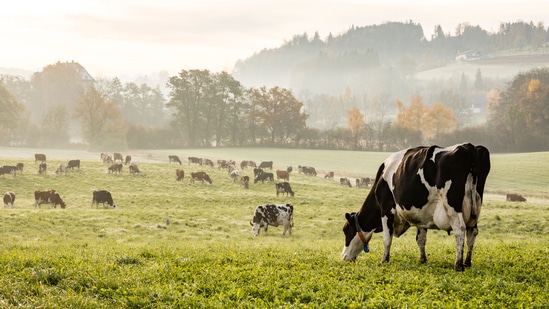Jul 14, 2024 07:14 PM IST
Fermented organic manure can reduce India’s fertiliser import costs by at least $1.5 billion and compressed biogas from the manure can produce cleaner energy.
The Indian Biogas Association (IBA) calls for the government to make state-owned fertiliser marketing companies adopt more of fermented organic manure to boost the sector, PTI reported, adding that the fermented organic manure market can reduce India’s fertiliser import costs by at least $1.5 billion.

Also Read: Tomato prices may ease in coming weeks due to supplies from Andhra and Karnataka
Compressed biogas (CBG), which can be produced from the manure can also help the government meet its cleaner energy targets before 2030, PTI wrote, quoting IBA Chairman Gaurav Kedia, who added that biogas is a highly underutilised opportunity.
How much does India spend on importing fertilizers?
India’s fertiliser import bill was $12 billion in the year 2020-21 and it is poised to go up to $20 billion by 2030, according to the report.
Also Read: Adani to build a port in Vietnam to increase international presence
India currently produces 1 million metric tonnes per annum (MMTA) of fermented organic manure, which can increase up to 7 million tonnes, with 570 plants upcoming, Kedia told PTI, adding that the increased potential can serve almost a state like Rajasthan fully.
How much of compressed biogas does India produce from fermented organic manure?
There are currently around 97 functional compressed biogas (CBG) plants, capable of producing 7.5 tonnes of biogas a day, he said.
India consumed 63.6 million tonnes of fertilizer in the year 2021-22 alone, with states like Uttar Pradesh, Maharashtra, Madhya Pradesh, Karnataka, Punjab, Rajasthan and Gujarat consuming the most, the report read.
The Department of Fertilizers must ensure that companies like IFFCO, KRIBHCO and NFL should support marketing fermented organic manure alongside chemical fertilizers, he said.
Kedia also suggested the Ministry of Agriculture should promote the use of fermented organic manure through its agricultural services like the Krishi Vikas Kendras (KVKs) and that agriculture universities should conduct field demonstrations with the manure to enhance its popularity among farmers.


